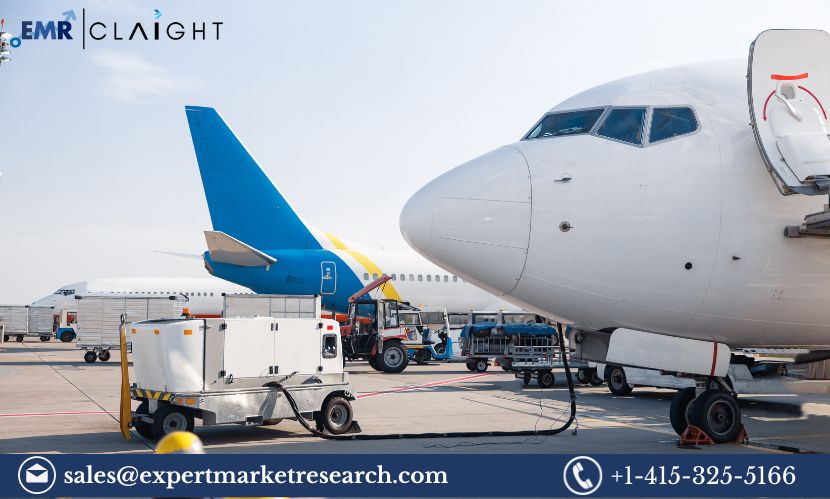Aviation Gasoline (Avgas) Market Share, Size, Trends and Industry Report 2024-2032
Aviation Gasoline (Avgas) Market Outlook
According to the latest report by Expert Market Research (EMR), the global aviation gasoline (Avgas) market size reached a value of USD 2.34 billion in 2023. With increasing air travel and the demand for specialized fuel for piston-engine aircraft, the market is expected to grow at a steady CAGR of 4.3% from 2024 to 2032, reaching an estimated value of USD 3.45 billion by 2032.
Avgas, short for aviation gasoline, is a specialized type of fuel used primarily in piston-engine aircraft. Unlike jet fuel used in turbine engines, Avgas is designed specifically for the requirements of smaller aircraft engines. It is characterized by its high octane rating and low volatility, which are essential for the reliable operation and safety of piston-engine aircraft.
Key Market Drivers
The global aviation gasoline (Avgas) market growth is driven primarily by the expansion of the general aviation sector and the increasing number of piston-engine aircraft in operation worldwide. General aviation encompasses a wide range of activities, including personal and business travel, flight training, aerial firefighting, and agricultural spraying. The versatility and reliability of piston-engine aircraft make them essential for these applications, thereby sustaining the demand for Avgas.
Moreover, the growing popularity of recreational flying and leisure activities involving small aircraft contributes significantly to the demand for Avgas. Aviation enthusiasts and hobbyists rely on piston-engine aircraft for recreational flying, airshows, and aviation events, thereby driving the consumption of Avgas globally.
Get a Free Sample Report With Table Of Contents – https://www.expertmarketresearch.com/reports/aviation-gasoline-avgas-market/requestsample
Industry Dynamics
The aviation gasoline (Avgas) market is segmented based on octane rating, with Avgas 100LL (Low Lead) being the predominant type used worldwide. Avgas 100LL is characterized by its higher lead content compared to automotive gasoline, which is necessary to enhance the octane rating and prevent engine knocking in piston-engine aircraft. However, there is a growing regulatory push towards reducing lead emissions from Avgas, prompting research and development efforts to develop environmentally friendly alternatives.
In addition to its primary use in piston-engine aircraft, Avgas finds applications in specialized aviation activities such as aerobatics and air racing, where high-performance engines require fuel with specific characteristics to achieve optimal performance and safety standards.
Technological Developments and Regulatory Landscape
Advancements in fuel technology and regulatory standards also play a crucial role in shaping the aviation gasoline (Avgas) market dynamics. Efforts are ongoing to develop sustainable aviation fuels (SAFs) that could potentially replace conventional Avgas, aligning with global initiatives to reduce carbon emissions and enhance environmental sustainability in aviation.
However, the transition towards SAFs for piston-engine aircraft remains in the early stages, primarily due to technical challenges and certification requirements. As a result, Avgas continues to dominate the market as the primary fuel choice for piston-engine aircraft, with advancements focused on improving its efficiency and environmental footprint.
Read Full Report With Table Of Contents – https://www.expertmarketresearch.com/reports/aviation-gasoline-avgas-market
Aviation Gasoline (Avgas) Market Segmentation
The market can be divided based on End Use and Region.
Breakup by End Use
- Private
- Commercial
- Defence
- Others
Market Breakup by Region
- North America
- Europe
- Asia Pacific
- Latin America
- Middle East and Africa
Competitive Landscape
Some of the major players explored in the report by Expert Market Research are as follows:
- Royal Dutch Shell Plc
- Indian Oil Corporation Limited
- Exxon Mobil Corporation
- TotalEnergies
- Phillips 66 COMPANY
- Repsol
- Others
Market Challenges
Despite its importance in general aviation, the aviation gasoline (Avgas) market faces several challenges. One of the primary concerns is the environmental impact of lead emissions from Avgas. Lead is added to Avgas to boost its octane rating, but it poses health and environmental risks, prompting regulatory authorities in some regions to seek alternatives or impose restrictions on its use.
Furthermore, the global shift towards more sustainable aviation fuels (SAF) poses a potential challenge to the Avgas market. SAF, derived from renewable sources such as biomass, waste oils, and hydrogen, offers a lower carbon footprint compared to conventional aviation fuels. As regulatory frameworks evolve to promote sustainable aviation practices, there is increasing pressure on the aviation industry to adopt SAF, potentially impacting the demand for Avgas over the long term.
Future Prospects
Looking ahead, the global aviation gasoline (Avgas) market is poised for steady growth driven by increasing general aviation activities, rising demand from military applications, and advancements in fuel technology. As the aviation industry continues to evolve, fueled by technological innovations and regulatory advancements, the Avgas sector will play a pivotal role in supporting safe and efficient operations of piston-engine aircraft worldwide. Stakeholders across the aviation value chain must adapt to emerging trends and opportunities to capitalize on the evolving market dynamics and sustain long-term growth in the global Avgas market.
Media Contact:
Company Name: Claight Corporation
Contact Person: George buttler, Corporate Sales Specialist — U.S.A.
Email: [email protected]
Toll Free Number: +1–415–325–5166 | +44–702–402–5790
Address: 30 North Gould Street, Sheridan, WY 82801, USA
Website: www.expertmarketresearch.com
Aus Site: https://www.expertmarketresearch.com.au/






